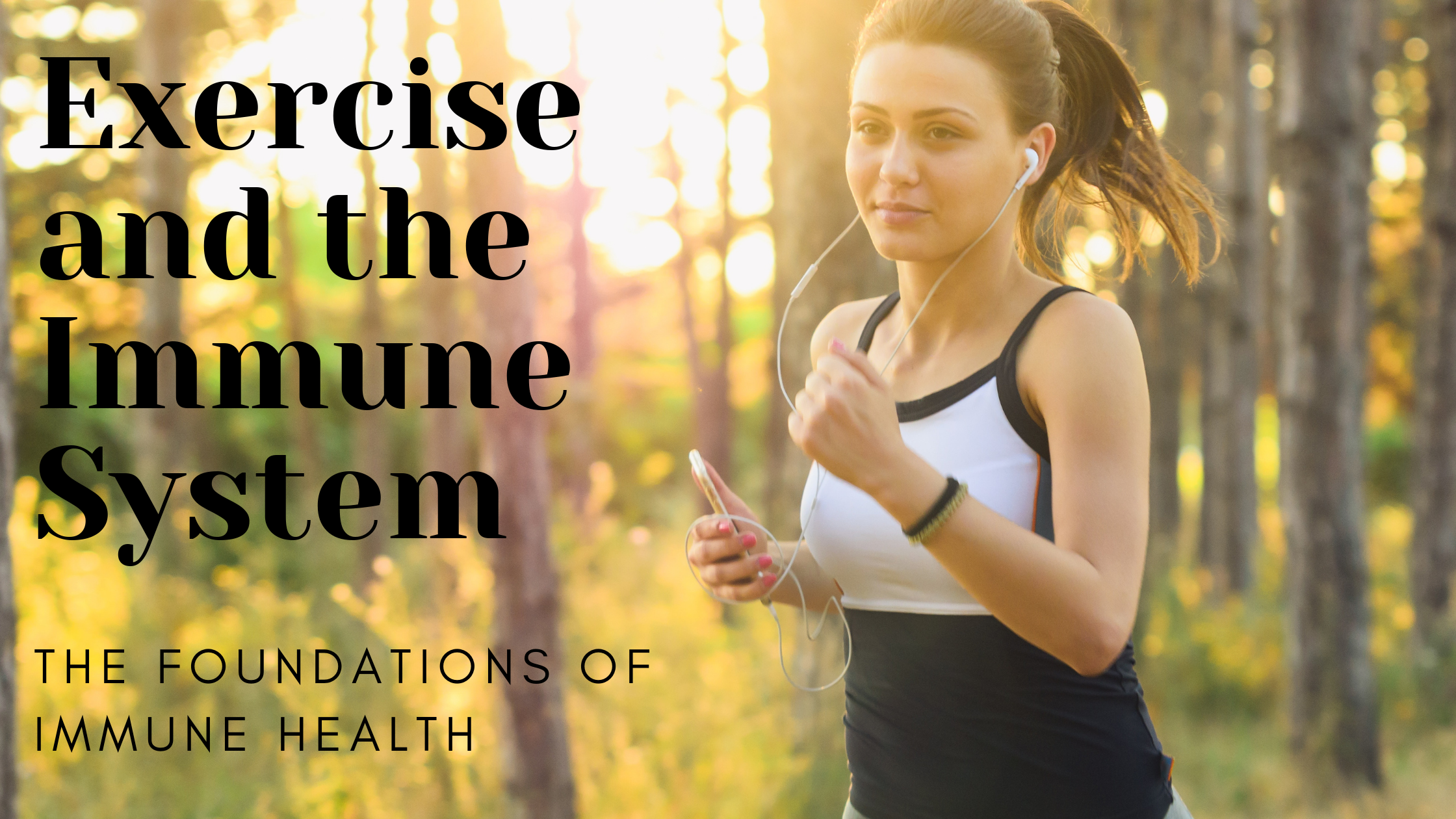
In order to make sure our bodies are functioning optimally, we must first address the foundations of immune health. If we can work towards the foundations of health, then we provide the body with a fighting chance against many different illnesses and disease. It is a good idea to come back to these foundations every day, and check in to see where you may need some additional support to ensure that we can prevent illness. The foundations of immune health include…
- A good night’s sleep
- Stress management
- A healthy diet
- Exercise
- Appropriate supplementation
This week we will be talking about exercise and immune health.
Why is Exercise Good for Immune Health?
There are several different mechanisms that exercise can affect immune health. First, it increases blood circulation in the body. When the heart rate is increased, it means that our white blood cells, our immune fighting cells, will move faster around the body and identify any invader to the body. It also means that the body is able to remove toxins and pathogens from the body faster.
The immune system has a direct impact on the number of white blood cells. Research shows that during exercise our white blood cell levels increase. This means that during exercise we are more able to fight infections.
There are also indirect ways that exercising helps the immune system. Exercising has a huge role in stress management and mental health, which are foundational to immune health. Additionally, exercising outdoors allows you to connect with nature and get additional vitamin D, both of which are incredible for immune health.
What do we suggest for exercise?
- Time: Exercise at least 30 minutes a day, 5 times a week at moderate intensity or 150 minutes a week.
- Type of Exercise: The type of exercise mainly studied was aerobic exercise. However, anything that gets your heart rate up can be beneficial!
- Schedule time in your day to exercise. Stay dedicated to this time. Look at is as a self-care time and understand that it is very important for your whole health.
- Don’t get discouraged. If you don’t hit your goal of exercising, understand that that’s okay. This is a behaviour change and it requires effort, dedication and time.
- Try to get outside to exercise at least 1-2 times a week. The additional vitamin D you get from being outside can add to additional benefits to your immune health. You get extra points if you exercise surrounded by nature. This can decrease stress hormones and provide extra benefits to the immune system.
